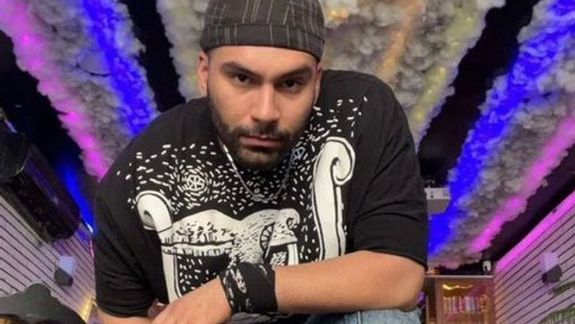Execution Of Young Protester Sparks Deep Anger Among Iranians

The hanging of a protester after a hasty and unfair trial has sparked deep anger among Iranians who believe his killing was meant to instill fear among the people.

The hanging of a protester after a hasty and unfair trial has sparked deep anger among Iranians who believe his killing was meant to instill fear among the people.
The judiciary announced the execution of Mohsen Shekari, a twenty-three-year-old waiter, on Thursday. By the evening some had taken to the streets, particularly on Sattar Khan Avenue in the west of the capital Tehran where he was arrested, to protest his execution. A video posted on Twitter shows people marching towards the Shekari home in silence.
Many others have taken to social media to express their deep anger of the regime’s sham trial and execution of a young man to instill fear among protesters.
“For every person who is killed there will be thousand rising up,” protesters often chant on the streets. This time they are vowing revenge for Shekari and all those innocently executed or killed on the streets. “Wait for our revenge for Mohsen Shekari!” one of the thousands of tweets posted Thursday with the hashtag Mohsen Shekari said.
Some Iranians called the execution a simple murder by the state.
Reformist pundit Abbas Abdi in Tehran in a tweet argued that legal punishment would only establish justice and placate people if the accused’s trial is held publicly and with due process including the right to appoint an attorney he wishes to represent him. He then added that Shekari’s execution will only exacerbate hatred and animosity among people rather than deterring them from protesting.
Shekari was arrested for allegedly injuring a member of Basij militia of the Revolutionary Guards in the shoulder with a blade during a protest on September 25 after the death in custody of Mahsa Amini in ‘morality police custody. He was also accused of blocking a street to impede the passage security forces’ vehicles.
As in many similar cases, Shekari was tortured into making a self-incriminating “confession” which was aired on the state television during his trial to justify the harsh sentence to be meted out.
Like many others tried on security-related and political charges, Shekari was denied the right to have a lawyer of his choice in his trial on November 1. According to the Judiciary’s statement Thursday, his death sentence was upheld by the Supreme Court soon after.
Before he was hanged nobody knew of his case as authorities intimidated the family into silence, telling them that publicizing the case “would not serve his interests”.
“Prisoners are the Islamic Republic’s hostages … Families abide by whatever the hostage-taker wishes to save the lives of their loved ones. But experience teaches us that silence only worsens the prisoner’s condition because the Islamic Republic is not just targeting a person. They take hostages and issue death and prison sentences to crack down on the whole society,” said rights activist Atena Daemi in a series of tweets Thursday and urged families not to keep a lid on their detained loved ones’ circumstances before it gets too late to do anything.
The Revolutionary Court has sentenced several other protesters to death, including 27-year-old rapper Saman Sayyadi whose family have officially been informed of his imminent execution. Like Shekari, they have been charged with ‘moharebeh’, meaning waging war against God” or “taking up arms against God and the Islamic state”.
Tweet unavailable